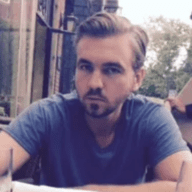When people are faced with a rare disease, the wave of emotions that follow can be tumultuous. Whether the person is a patient or a caregiver, a diagnosis comes with a lot of questions, and that initial ignorance can quickly feel like desperation. One of the most challenging realities of rare diseases is that sometimes there are not any answers. For those of us who have never had to deal with a rare disease diagnosis, we might take the authority and expertise of doctors for granted. We always assume that illness will be met with action, every ailment has a cure, modern medicine will work its magic. In other words, we think the cavalry is coming.
For many people impacted by rare disease, once the diagnosis sinks in, they then have to contend with the fact that no cavalry is coming. Doctors aren’t infallible and their knowledge isn’t infinitely comprehensive. In fact, many people affected by rare diseases struggle for a long time just to find a doctor who knows anything about the illness with which they have been diagnosed. Thankfully, the rare disease community is made up of incredible people who fill voids by taking matters into their own hands. These people, who valiantly refuse to accept scarcities in research and treatments, become citizen scientists.
Citizen science in the rare disease world takes the form of public participation in research projects, usually by volunteers affected by diseases. These volunteers collaborate with doctors, scientists, researchers and other stakeholders to contribute to medical advancements and accelerate the discovery of cures.
The internet and social media have acted as a force multiplier for the efforts of these citizen scientists. They can organize grassroots studies, comparing notes and findings. They can work with foundations—or create their own if one does not exist. They can take the development of treatments into their own hands. They can build the kinds of communities integral to sharing support.
The legitimacy of the work is also being recognized by institutions. In 2016, the 21st Century Cares Act was signed into law which, “builds on FDA’s ongoing work to incorporate the perspectives of patients into the development of drugs, biological products, and devices in FDA’s decision-making process.” The FDA recognizes the value of the work being carried out by communities and they are modernizing their approach to drug development by integrating this real-world data into processes.
TREND wants to shine a light on the incredible advancements being accelerated by citizen scientists. Which is why we are creating an award to recognize one citizen scientist every year who has had a substantial impact on the rare disease community in which they work. From the moment these influential individuals were confronted with a rare disease they never waited for the cavalry to save the day. Instead, they became the cavalry.
Stay tuned for our announcement of the 2019 Trend Citizen Scientist Award!

